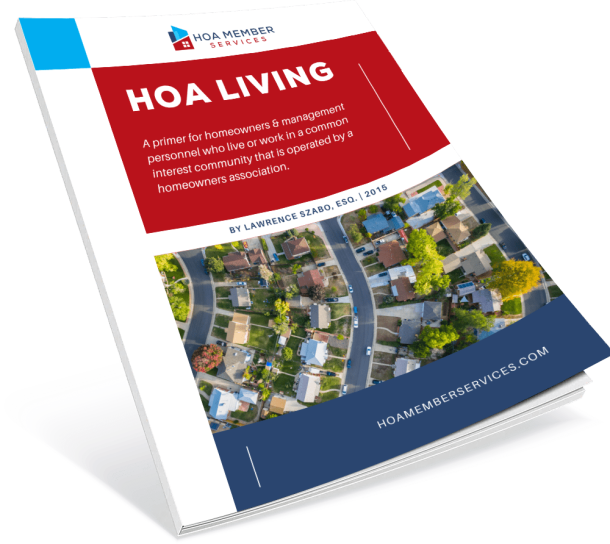Are you thinking about buying a property or moving into a community but feeling overwhelmed by the rules set by something called an HOA — or is it a POA? You might be wondering, “What’s the difference, and why should I care?”
Here’s the scoop: homeowners’ associations (HOAs) and property owners’ associations (POAs) may seem like they mean the same thing, but they actually have distinct differences. These differences can significantly affect your living experience, your expenses, and the level of control you have over your property ownership.
In this article, we’ll clarify everything you need to know about HOA vs. POA — what each one is, how they differ, and, most importantly, why understanding the difference is crucial for your investment and your peace of mind. Let’s dive in and make sense of it all.

What Are HOAs and POAs?
If you’ve ever lived in or considered moving to a neighborhood with shared spaces or community rules, you’ve probably come across terms like HOA or POA. These acronyms might sound like legal jargon, but they’re pretty straightforward once you break them down.
Both aim to provide essential services to keep communities organized, attractive, and thriving — but the scale and scope of their responsibilities and the way they go about it is what sets them apart. Let’s explore what each one means and why they’re important.
Homeowners Association (HOA) Basics
Think of a homeowners association (HOA) as the neighborhood’s rulebook keeper. Designed for residential areas like charming cul-de-sacs, cozy condos, or neat rows of townhouses, an HOA exists to maintain a community’s visual appeal and order.
They set up a playbook of rules through their governing documents called covenants, conditions, and restrictions (CC&Rs) that homeowners agree to follow when they move in. These rules can cover the smallest details including anything from how short your grass should be to the color palette you’re allowed to use on your house or the height of your garden fence.
For example, your HOA might insist on no neon green homes or require you to keep your driveway free of clutter. While it might feel a little restrictive, the idea is to maintain property values and ensure the neighborhood looks polished and inviting.
Property Owners Association (POA) Basics
Now, what is a property owners association (POA) in a neighborhood? Well, a POA takes the concept of an HOA and cranks it up a notch. While HOAs focus solely on residential neighborhoods, POAs usually have a broader reach. They often manage larger communities that include a mix of single-family residences and commercial spaces.
Think of a neighborhood that has homes, a community park, and maybe even a strip of shops or a café — a property owners association is likely overseeing it all.
Unlike an HOA, which is primarily about making sure homes, yards, and shared residential community spaces follow specific standards, a POA might also be in charge of maintaining commercial properties, mixed-use developments, or even entire neighborhoods.
For instance, they might ensure the local coffee shop blends well with the neighborhood’s aesthetic or that a community walking trail stays clean and accessible.

Key Differences Between HOAs and POAs
Here’s a more detailed breakdown to help you get an even clearer picture:
Scope and Focus
An HOA resembles that overly perfectionist neighbor who can’t help but peek over your fence. They have a keen interest — maybe too much — in whether your lawn is trimmed to precisely 2.5 inches or if your curtains clash with your house’s exterior color.
HOAs are intensely focused on residential properties, ensuring that neighborhoods remain visually appealing and orderly. They prioritize maintaining the aesthetics of homes and shared areas, such as recreational facilities such as pools, parks, and sidewalks.
In contrast, a POA acts more like a town planner with a wider perspective. While they do care about individual homes, they also consider the overall landscape — including commercial areas, parks, roads, and even that unique mixed-use building that features yoga studios alongside coffee shops.
Authority and Responsibilities
HOAs are focused on upholding strict rules and regulations to ensure that everyone adheres to the local zoning regulations and community standards.
They can be quite particular — whether it’s about the architectural guidelines like the color of your shutters or where you can park your car, HOAs have regulations, and they make sure to enforce them. Their primary goal is to keep the neighborhood looking cohesive and well-maintained.
In contrast, POAs take a broader approach, acting as the overseers of the larger community. They typically concentrate on infrastructure — such as roads, utilities, and community resources — ensuring that the entire area operates smoothly. So, while HOAs prioritize residential harmony, POAs are more concerned with infrastructure.
Membership
Another key difference is joining the association and this is where things get interesting. HOA membership isn’t usually a choice. If you own property in an HOA-governed neighborhood, you’re automatically a member. No ifs, ands, or buts.
With POAs, it’s a bit different. Membership isn’t always mandatory and might depend on your property type or location. POAs often govern larger areas or multiple types of properties, so their membership rules can be more flexible.
So, if you’re looking for less commitment, a POA might be more your style.
Fees and Dues
And then there’s money — always a hot topic. HOA fees often go toward things that make life feel luxurious: a sparkling pool, that fancy clubhouse, or even a community newsletter.
POAs, on the other hand, tend to take a more practical approach. Their regular fees might cover the nitty-gritty of property management: fixing potholes, maintaining drainage systems, or keeping the town square tidy.’
HOA vs. POA: Pros and Cons
When deciding between an HOA (Homeowners Association) and a POA (Property Owners Association), it’s important to dig into what each brings to the table — and what they expect from you in return.
Here’s a breakdown of the pros and cons that might affect your decision:
Homeowners Associations (HOAs):
| Pros | Cons | |
|---|---|---|
| Scope | Maintains a consistent residential look and feel. | Rules can feel overly restrictive. |
| Management | Focused on specific neighborhood improvements. | Can be micromanaged by overzealous boards. |
| Membership | Typically mandatory, ensuring collective participation. | Lack of choice can feel burdensome. |
| Fees | Clear budget for residential amenities like pools. | High fees for limited benefits in some cases. |
| Enforcement | Helps protect property values through consistent rules. | Strict enforcement may lead to disputes. |
Property Owners Associations (POAs):
| Pros | Cons | |
|---|---|---|
| Scope | Covers broader community needs like parks or roads. | May feel impersonal due to larger scope. |
| Management | Provides infrastructure and resource management. | Less direct focus on individual properties. |
| Membership | Membership may offer flexibility in larger communities. | Voluntary membership could dilute influence. |
| Fees | Allocates fees for large-scale infrastructure projects. | Fees may feel disproportionate for small owners. |
| Enforcement | Less intrusive rule enforcement for residents. | Can lack focus on residential property upkeep. |

Why Knowing These Differences Matter?
When it comes to choosing your next home, understanding the difference between an HOA and a POA is more important than you might realize. These aren’t just bureaucratic labels; they can have a big impact on your day-to-day life, your wallet, and even the long-term value of your property.
Here’s why digging into these details could save you headaches and even money in the long run:
Homebuyer Perspective
Let’s say you discover your dream home, settle in, and then find out there are a bunch of rules you weren’t aware of. Maybe parking your RV in the driveway is a no-go, or you’re hit with an unexpected monthly landscaping fee.
Sounds overwhelming, right? This is why it’s crucial to know if your property is part of an HOA or POA. HOAs typically concentrate on residential guidelines, while POAs might cover a wider range of regulations.
Getting clear on this upfront can help you dodge those unwelcome surprises and get you ready for what lies ahead.
Rule Enforcement
Here’s the thing — how much oversight do you really want in your community? Some individuals appreciate a well-managed neighborhood with immaculate lawns and a polished appearance.
On the other hand, some might enjoy a more laid-back atmosphere where they can express themselves, like painting their front door purple if they choose.
HOAs typically enforce strict guidelines regarding aesthetics and community standards, while POAs can differ significantly. Understanding the level of enforcement you can expect will help you determine if the community aligns with your lifestyle and comfort level.
Investment and Property Value
Let’s face it — your home is not just a place to live; it’s also an investment. Homeowners’ Associations (HOAs) often prioritize curb appeal, which can enhance property values by ensuring the neighborhood looks attractive and well-kept.
A Property Owners’ Association (POA), however, may influence property values in different ways. They typically oversee infrastructure, such as roads and community areas, which can contribute to value in a broader, less obvious manner.
Recognizing this can help you determine what’s most important to you: appealing aesthetics or improvements that benefit the entire community.

Common Misconceptions About HOAs and POAs
Let’s face it: the world of HOAs (Homeowners Associations) and POAs (Property Owners Associations) can be confusing. And with that confusion comes a ton of myths and misconceptions.
Let’s break down some of the most common misunderstandings so you can approach these terms with clarity:
1. “They are the Same Thing”
Not quite! While HOAs and POAs share some overlapping responsibilities, they’re not interchangeable. HOAs typically oversee residential communities, enforcing rules and maintaining shared spaces.
POAs, on the other hand, can extend their governance to commercial properties, undeveloped land, and more. Understanding the difference can help you navigate their roles with confidence.
2. “All Associations Are Bad!”
This one’s super common, and honestly, it’s understandable. People love to share horror stories about HOA board meetings that spiral into chaos or the one neighbor who seems to thrive on enforcing obscure rules.
But the reality is more nuanced. Living in a community with an HOA or POA has its perks, too — like well-maintained common areas, access to amenities like pools or parks, and even a potential boost to your property value.
Sure, some associations have overzealous rule enforcers, but not all are out to make your life difficult. Think of it as a trade-off: you give up a bit of autonomy, but you get a more organized and attractive community in return. It’s not all bad news!
3. “POAs Don’t Affect Me If I’m Residential”
It’s easy to assume POAs only apply to big commercial properties or vacant lots, but that’s not true — they can still impact residential property owners, too. For example, if your home is part of a mixed-use development, a POA might be managing both the residential and commercial spaces.
That could mean extra fees, shared maintenance obligations, or specific rules and regulations that affect how you use your property. Even if you think you’re just dealing with your cozy little neighborhood, the POA could have a say in how things run.
It’s worth digging into the details to understand what’s on the table.

HOA vs POA: How to Choose What’s Right for You?
Choosing between an HOA vs. POA can significantly impact your daily life as a property owner. To figure out what’s best for you, it’s important to dig into what each option offers — and what they expect from you in return.
Here’s a breakdown to help you choose.
Consider Your Priorities
Think about your personal preferences when it comes to your living environment.
- Lifestyle: Do you love the idea of a perfectly maintained neighborhood where every home and yard looks picture-perfect? If so, an HOA might be your ideal match. They’re known for setting clear rules to maintain a uniform look and feel in the community, which is great if you value order and consistency.
- Flexibility: On the other hand, if you’d rather have more freedom to personalize your home while still benefiting from some level of community oversight, a POA might suit you better. POAs tend to focus on broader community management rather than dictating how you maintain your property.
Think About Fees
Nobody loves paying extra fees, but they’re part of life in both HOAs and POAs. The key is understanding what you’re paying for and whether it’s worth it.
HOA monthly fees often fund amenities like pools, clubhouses, or landscaping in shared areas, while POA dues might go toward infrastructure improvements or other large-scale projects.
Before committing, ask yourself: Will I actually use these amenities? Do these improvements align with my needs? If not, those fees might feel like more of a burden than a benefit.
Evaluate Rule Enforcement
Let’s be honest — some people thrive under clear guidelines, while others find them stifling. Are you okay with being told what color you can paint your house or how often you need to mow your lawn?
If you are, an HOA might feel like a good fit because it’s all about maintaining strict standards. However, if you’d rather make those decisions yourself and have fewer restrictions on your property, a POA could be a better option.
It’s all about your comfort level with rules and the trade-offs they bring.
Check Future Development Plans
This is a big one, especially in communities managed by a POA. POAs often oversee areas that include not just homes but also commercial developments or public spaces. While this can bring exciting opportunities, it might also change the neighborhood’s vibe over time.
Ask yourself: Am I okay with more development in my community, or do I prefer a more stable, predictable environment? Knowing the long-term vision for the area can help you decide if it aligns with what you want.
Talk to Current Members
Sometimes, the best way to get a sense of what life under an HOA or POA is really like is to talk to the people already living there, whether homeowners or property owners. Are they happy with the way things are run?
Do they think the fees are fair, and do they feel the rules and regulations add value to the community? These conversations can give you a real-world perspective that brochures and websites simply can’t.
How to Navigate Living Under an HOA or POA
Living under an HOA or a POA can sometimes feel like living under a magnifying glass. They promise well-maintained neighborhoods and higher property values, but they also come with a set of rules that can make you feel like you’re back in school.
So, how do you make the most of it without feeling stifled? Here’s how to get it right:
1. Research First: Know What You’re Getting Into
Before you fall in love with that charming house or plot of land, pause. HOAs and POAs come with contracts — often thick packets of documents outlining what’s allowed, what’s not, and how much you’ll pay in fees.
Think of these as the fine print of your new life. Are there restrictions on how you can decorate your home? Can you park that camper in your driveway? Will fees suddenly skyrocket without much notice?
Take the time to go through the rules and regulations carefully. Ask for the financial reports, too; they’ll tell you if the association is managing funds wisely or if they’re headed for trouble. It’s better to see the full picture before you’re part of the show.
2. Get Involved: Have a Say in What Happens
Joining an HOA or POA doesn’t mean you have to be a passive participant. Most associations hold regular meetings to discuss budgets, maintenance projects, and even new rules. This is your chance to have a say.
Don’t just sit back and grumble about decisions you don’t like — show up, share your thoughts, and vote. The more active you are in community events, the more influence you’ll have over the things that affect your daily life.
Plus, community engagement helps you build relationships with your neighbors and the board members. When people know you personally, they’re often more willing to listen to your concerns. It’s all about being part of the community, not just living in it.
3. Know Your Rights: Protect Yourself from Overreach
Here’s the thing about HOAs and POAs: they have rules, but those rules aren’t limitless. Each state has laws that set boundaries on what these associations can and can’t do. For example, they can’t discriminate against you, and in many cases, they can’t fine you excessively without proper notice.
Take some time to familiarize yourself with your rights as a homeowner or property owner. You don’t need to memorize every detail, but knowing the basics can help you spot when something seems off. Think of it as your safety net — because even the most well-meaning HOA can overstep occasionally.
4. Get Legal Advice: When in Doubt, Call a Pro
Let’s face it: sometimes, no matter how much you prepare, you’ll run into a situation where you’re not sure what to do. Maybe the HOA is demanding fees you don’t think you owe, or perhaps they’re threatening action over something that feels unfair.
When things get complicated, don’t try to go it alone. An attorney who specializes in HOA or property law can be a lifesaver. They can review your case, explain your options, and help you stand your ground if needed.
A little professional guidance can go a long way toward keeping the peace — or fighting back, if it comes to that.

Final Thoughts
So, in a nutshell, when it comes to HOA vs. POA, it really boils down to the scope of their responsibilities. HOAs typically stick to maintaining the homes and shared spaces within the neighborhood, while POAs often have a broader reach, managing entire communities, including residential and commercial buildings or even undeveloped land.
Both play vital roles in shaping the living experience, but the way they operate and their impact on you can be quite different. Why does this matter? Knowing these differences can save you from surprises down the road.
After all, these organizations influence not just your property values but also the way your community functions daily. So, take charge of your understanding — review your current HOA or POA agreements, and don’t hesitate to reach out to your local real estate industry experts if you’re unsure about the specifics.
Still have questions about your HOA or POA? Join us today for access to personalized HOA attorney services, state-specific resources, and expert advice. Whether you’re looking for guidance on your community’s rules, resolving disputes, or simply staying informed, we’re here to help you make the most of your community experience.

